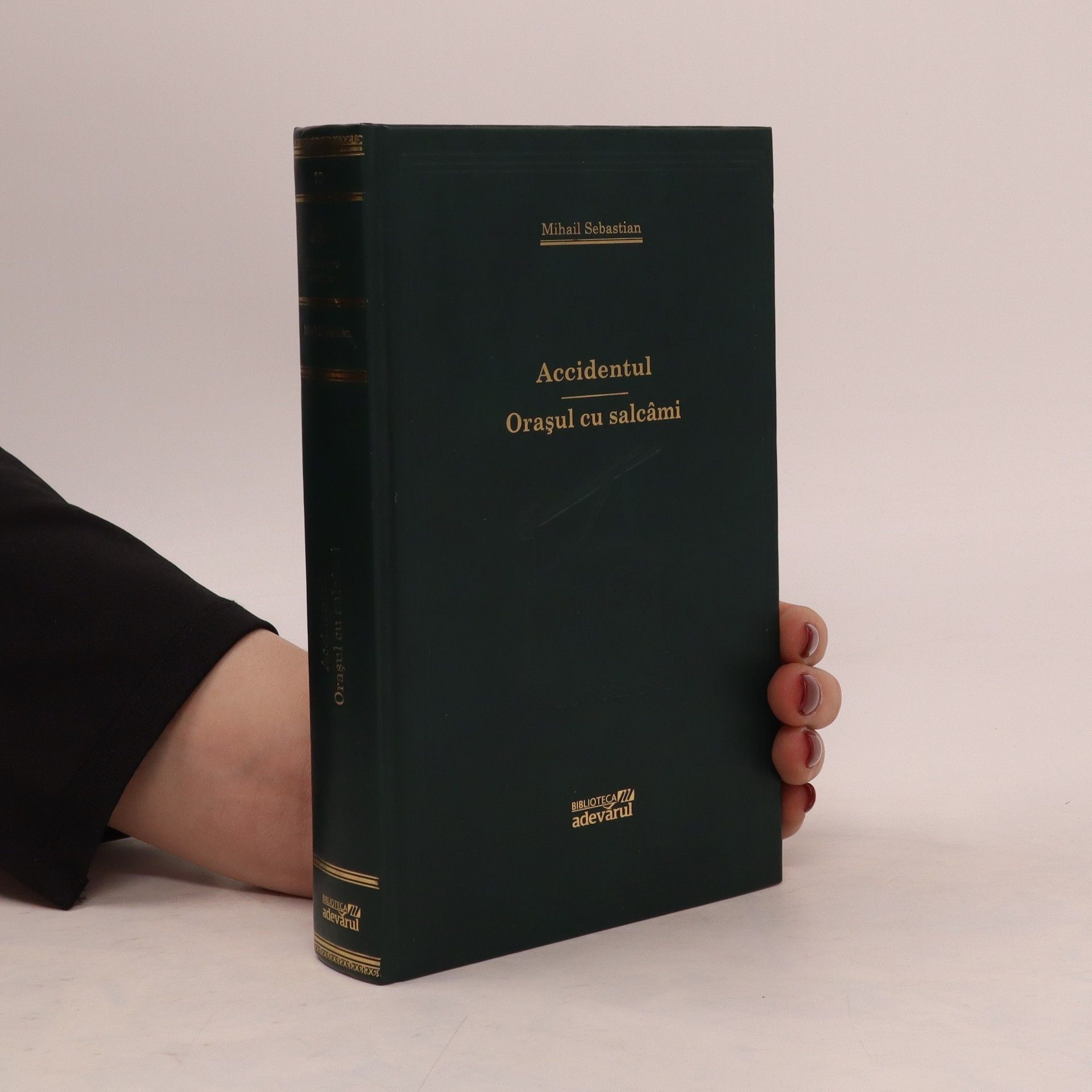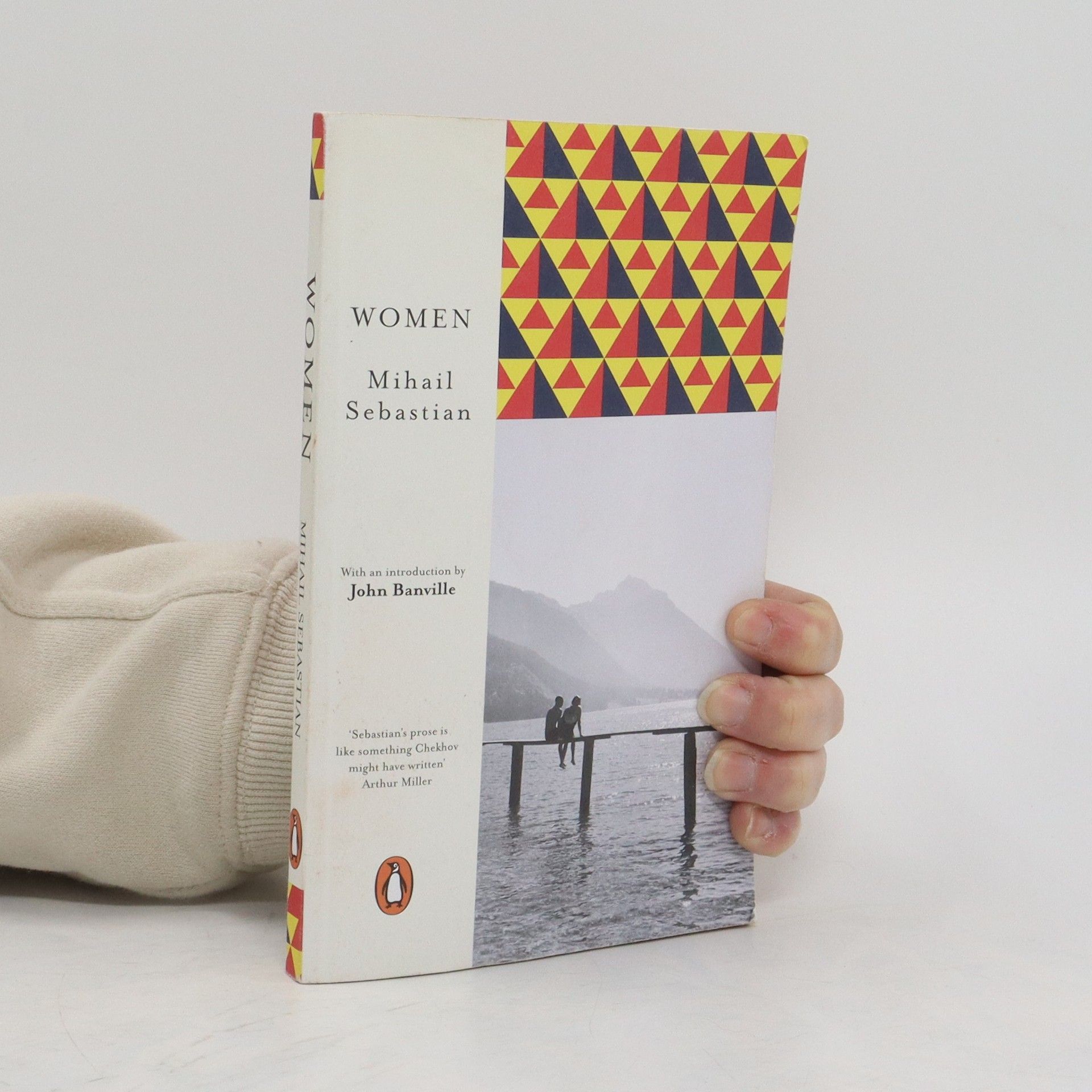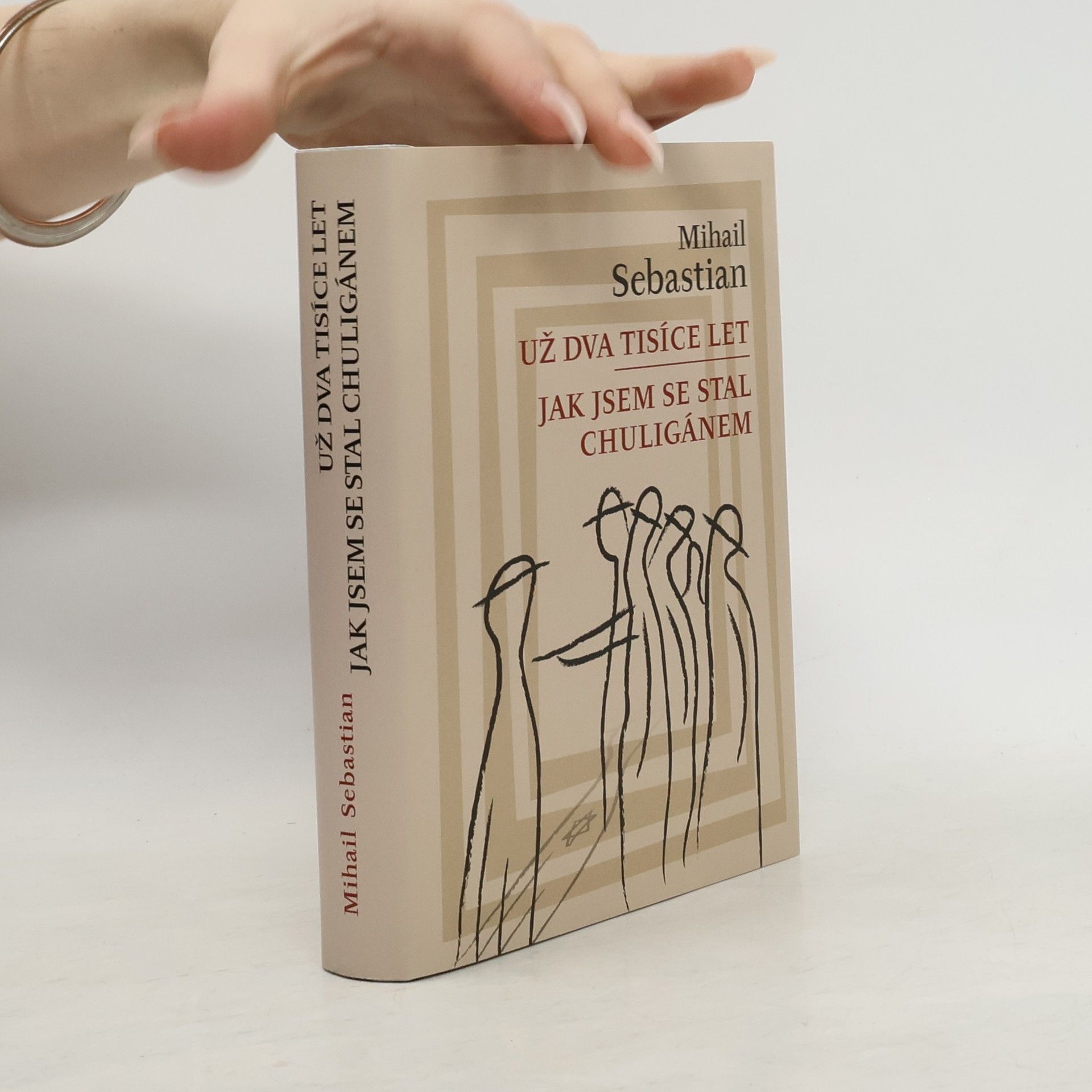Sebastian-Mihail Ivanescu Books







The Star with no Name
- 146 pages
- 6 hours of reading
Mona, stranded in a rural town after being ejected from a train for lack of a ticket, faces a night of uncertainty with no money or accommodation. Her luck changes when Marin, a local schoolteacher, offers her shelter in his home while he is away. This unexpected kindness sets the stage for potential connections and new beginnings in an unfamiliar place.
For Two Thousand Years
- 240 pages
- 9 hours of reading
'Nothing I have read is more affecting than Mihail Sebastian's magnificent, haunting 1934 novel, For Two Thousand Years' - Philippe Sands, Guardian Books of the Year A prescient interwar masterpiece, available in English for the first time 'Absolutely, definitively alone', a young Jewish student in Romania tries to make sense of a world that has decided he doesn't belong. Spending his days walking the streets and his nights drinking and gambling, meeting revolutionaries, zealots, lovers and libertines, he adjusts his eyes to the darkness that falls over Europe, and threatens to destroy him. Mihail Sebastian's 1934 novel was written amid the anti-Semitism which would, by the end of the decade, force him out of his career and turn his friends and colleagues against him. For Two Thousand Years is a lucid, heart-wrenching chronicle of resilience and despair, broken layers of memory and the terrible forces of history.
Women
- 176 pages
- 7 hours of reading
Stefan Valeriu, a young Romanian student, holidays alone in the Alps, where he soon becomes entangled in romantic relationships with three different women who pass through his guesthouse. We follow Stefan after his return to Paris as he reflects on the women in his life, at times playing the lover, and at others observing shrewdly from the periphery. Women's four interlinked stories offer nuanced and deeply moving portraits of romantic relationships in all their complexity, from unrequited love and passionate affairs to tepid marriages of convenience. In light, elegant prose, Mihail Sebastian, widely regarded as the greatest Romanian writer of the 20th century, explores longing, otherness, empathy, and regret.
Es war eine literarische Sensation, als Mihail Sebastians Tagebücher 1935–44 Mitte der 90er Jahre in Rumänien und bald darauf in Frankreich, England und den USA erschienen. Das lange vergessene Hauptwerk des rumänischen Dichters ist ein einzigartiges, aufwühlendes Zeugnis der Menschenwürde, das das Leben in der Verfolgung und unter wachsender Todesgefahr dokumentiert.
Dekalog leczenia przewlekłej białaczki szpikowej
- 84 pages
- 3 hours of reading
Oddaję w Państwa ręce praktyczne kompendium wiedzy na temat leczenia przewlekłej białaczki szpikowej – choroby dobrze poznanej, której leczenie – choć w większości przypadków bardzo skuteczne – bywa skomplikowane. Jest o co walczyć, ponieważ terapia inhibitorami kinaztyrozynowych stwarza szansę na osiągnięcie trwałej odpowiedzi niewymagającej stosowania dalszego leczenia. W Dekalogu… zamieszczono, w formie tabel i punktów, m.in. aktualne wytyczne dotyczące leczenia sformułowane przez European Leukemia Net, opis czynników ryzyka, od których zależy wybór optymalnej terapii, omówienie inhibitorów kinaztyrozynowych, sposobów zarządzania nimi i ich najczęstszych działań niepożądanych, a także interakcji ze stosowanymi lekami. Mam nadzieję, że w Dekalogu… znajdą Państwo informacje przydatne w codziennej praktyce, które pomogą w osiągnięciu zakładanego celu leczenia. Tomasz Sacha
Záznamy rumunského dramatika a literáta z období fašismu představují kroniku společenské atmosféry tehdejší Bukurešti. Deník slouží jako osobní výpověď i dokument, který zachycuje vzrůstající antisemitismus, jemuž podlehly i intelektuální elity. Mihail Sebastian, ve svých 28 letech již známý spisovatel a dramatik, začal psát deník v roce 1935 a pokračoval až do roku 1944. V něm reflektuje svůj osobní život, záliby a tvůrčí záměry, zatímco sleduje radikální změny ve společnosti – nástup nacismu, antisemitismus, diskriminaci a vraždění Židů v Rumunsku, včetně kolaborace jeho přátel s novým režimem. Deník zachycuje proměnu úspěšného literáta v páriu, který si s rezignovaným údivem uvědomuje osamělost své víry v přátelství a kulturní hodnoty, konfrontován s tím, že se narodil jako Žid v Evropě první poloviny 20. století. Sebastian přežil konec antisemitského teroru i pád hitlerovského Německa, ale zemřel v roce 1945 při nehodě. Jeho deník byl po válce ukrýván, až byl v roce 1961 poslán do Izraele a v Rumunsku vyšel až v roce 1996, následně byl přeložen do francouzštiny a angličtiny. Česky vychází poprvé. Překlad a poznámku napsal Jindřich Vacek.
Už dva tisíce let / Jak jsem se stal chuligánem
- 400 pages
- 14 hours of reading
Skandál kolem románu rumunského židovského spisovatele Mihaila Sebastiana odhalil problémy, které přesahují literaturu. Kniha, vydaná v roce 1934, reflektuje dobu, kdy se v rumunské společnosti rozvíjely ideje antisemitismu a diktatury. Sebastian začal psát v roce 1931, kdy vládl relativní klid, a požádal svého „guru“ prof. Nae Ionesca o předmluvu. Ionescu však reagoval obhajobou antisemitismu, což vyvolalo aféru, která se stala „soutěží v intelektuální devastaci“. Sebastian na to reagoval koláží esejů a textů, kde vysvětluje okolnosti vzniku románu a distancuje se od Ionescovy předmluvy. Jeho úvahy, i když vznikly v konkrétní historické situaci, mají nadčasovou relevanci. Tento konglomerát je výsledkem zvláštních souvislostí se skutečným životem a vychází z vynikajícího románu, který zobrazuje „lidskou komedii“ v její mnohovrstevnatosti. Hrdina, formou quasi-deníku, mapuje události a ideologické tendence v letech 1922 až 1933, zkoumá postavení Žida ve společnosti a metafyzické téma osamělosti. Román je prostoupen citem, melancholií a ironií. Sebastian se zamýšlí nad tím, jak diktatury manipulují masy, a zdůrazňuje význam kritického rozumu jako jediného nepřítele tyranie.


